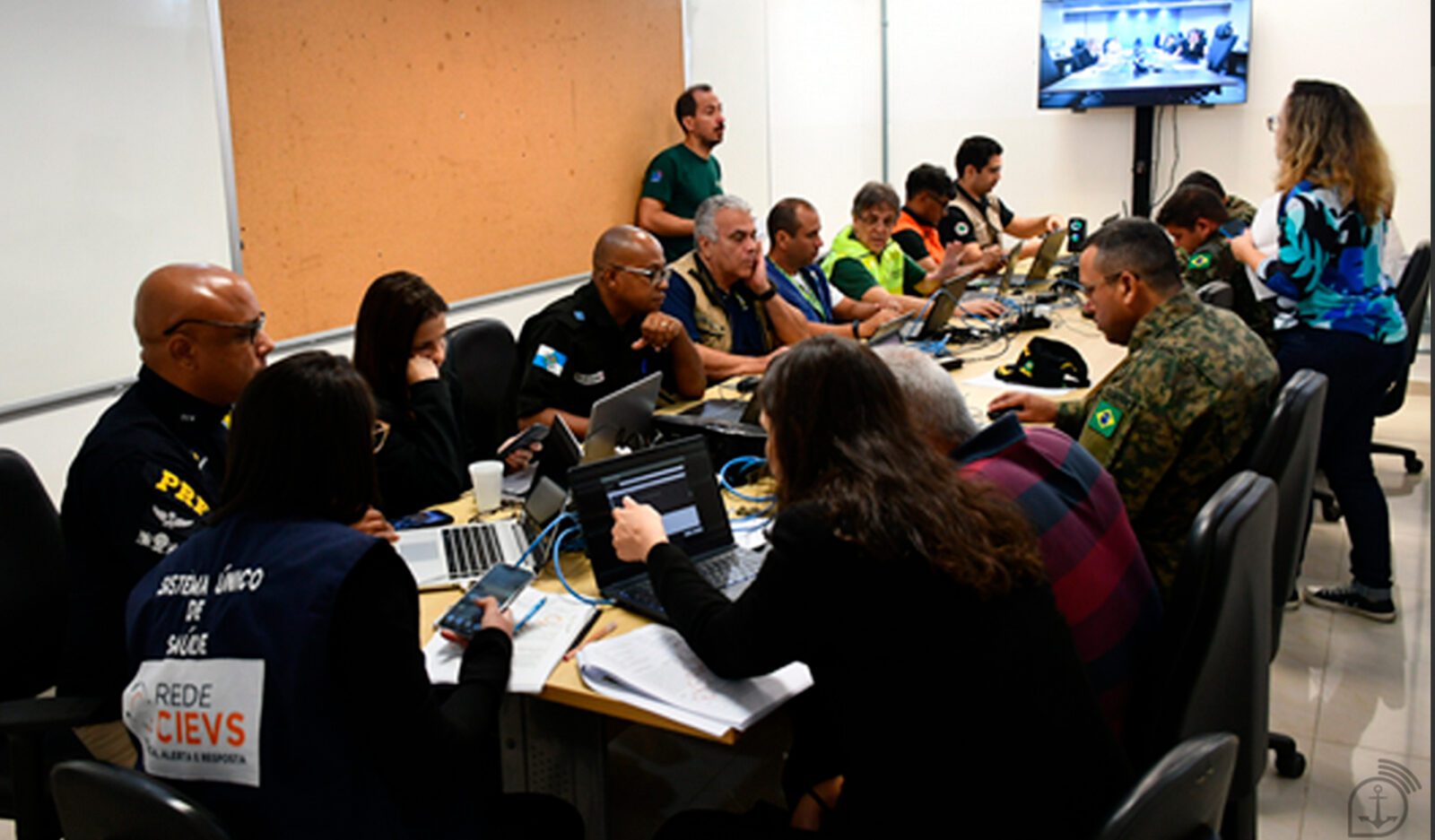Exercise held in Rio de Janeiro with the participation of the Navy and other institutions
From October 17 to 20, the Almirante Sylvio de Camargo Instruction Center (CIASC) hosted an exercise to improve plans and processes so that the Resende Nuclear Fuel Plant (RJ) is able to react to various emergency situations.
The Partial Integrated Emergency Response and Physical Security Exercise, called RESEX, is part of the program of activities of the Brazilian Nuclear Program Protection System (SIPRON), coordinated by the Office of Institutional Security of the Presidency of the Republic (GSI), the central body of SIPRON.
Since the planning phase, the exercises have had the support of the Brazilian Navy (MB) in their coordination, through the Nuclear, Biological, Chemical and Radiological Defense Center. According to the Center’s Commander, Captain Flávio Lamego Pascoal, “the Navy’s support in responding to emergencies contributes to the integration of the response capacities available in the most diverse public agencies”.
RESEX improves emergency response, improves procedures and demonstrates the Navy’s ability to operate effectively, in partnership with other agencies, for the Brazilian Nuclear Program (PNB).
Other agencies that took part in the exercise were the National Nuclear Energy Commission (CNEN), the Nuclear Industries of Brazil (INB), the Ministry of Defense, the Armed Forces, Public Security Agencies, as well as the Brazilian Institute for the Environment and Renewable Natural Resources (IBAMA).
The Resende Nuclear Fuel Factory operates in the uranium production chain, in the so-called “nuclear fuel cycle”, which includes mining, beneficiation, enrichment, as well as the manufacture of powder, pellets and the fuel that supplies Brazil’s nuclear power plants. It is a public company linked to the Ministry of Mines and Energy, which has a monopoly on the production and sale of nuclear materials.
The Brazilian Constitution states that uranium energy can only be used in the country for peaceful purposes. In addition to electricity production, nuclear energy has also been widely used in other areas: medicine, the environment, engineering, the production of radiopharmaceuticals, agriculture, food preservation, the sterilization of various materials and research.
Source: Agência Marinha de Notícias
